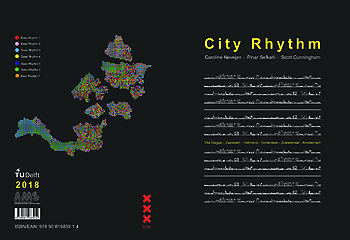The contributors to the session, Pinar Sefkatli and Rebekah Wilson, will discuss how rhythms in cities and in human interactions manifest themselves, and how these can be traced in different forms of observation and analysis. Pinar will introduce about what rhythm is for Henri Lefebvre, and talk about the experience of urban rhythms and data in the City Rhythm exploratory research project.
In her lecture Strategies for Exploiting Unstable Networks,Rebekah Wilsonwill focus on the rhythms in networks. Public networks are messy affairs; when navigating them we must address latencies, instabilities, technical anxieties, multiple locations, and multiple authors. Performing together over a network while being located at a distance from each other disrupts our ability to achieve precise musical synchronisations and rhythms, disruptions which are further exacerbated by the absences and fragmentations of the vital information that we traditionally rely on and communicate with for musical synchronisation and flow. For these reasons,networked music performance is widely assumed to be a future genre, for when network latencies and throughput improves;orit is seen asa genrethat is in the presentday reserved for the high-end heavilyoptimised networks afforded by institutions and not individuals, or assomethingprimarilyreserved for improvisatory or aleatoric composition and performance techniques. Instead,Wilson holds the view that the constraints of the network create an environment in which new approaches to music performance can be reconsidered—wherethe performative constraints of networked music performance can be manipulated for musical discovery and realisation,and the development of technology can make audible the traces of the network. The unstable latency and the uncertain asynchronous arrival of audio data over the public Internet — often seen as problematic —becomes a medium where networked music performance offers a rich wealth of emerging potential for new aesthetic compositional approaches.

